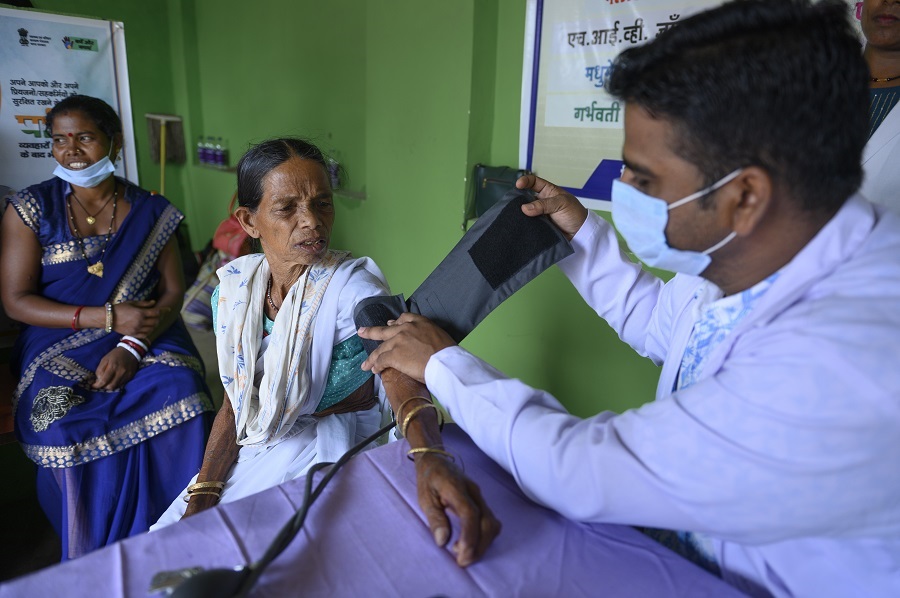Providing continuum of care from early detection to control of hypertension and improving quality of care is a critical factor for leading a healthy life. It can also lead to decrease in morbidity and mortality due to CVDs.
Measurement of blood pressure is quick and painless. Written as two numbers, the first (systolic) number represents pressure in blood vessels when the heart contracts or beats and second (diastolic) number represents pressure in the vessels when the heart rests between beats. Hypertension is diagnosed if, when measured twice on different days, systolic blood pressure on both readings is ≥140 mmHg and/or diastolic blood pressure on both readings is ≥90 mmHg. It is important to know one’s blood pressure reading by checking it regularly, adopting a healthy lifestyle and staying on prescribed treatment to reduce hypertension and its complications.
Nearly 63% of total deaths in India are due to noncommunicable diseases, of which 27% are attributed to cardiovascular disease which affects 45% people in the 40-69 age group. Raised blood pressure is among the most important risk factors for CVDs. Moreover, it remains poorly controlled due to low awareness about hypertension, lack of appropriate care through primary care and poor follow up.
India Hypertension Control Initiative
India has set a target of 25% relative reduction in the prevalence of hypertension (raised blood pressure) by 2025. To achieve this, the Government of India launched the Indian Hypertension Control Initiative (IHCI) to fast-track access to treatment services for over 220 million people in India who have hypertension.
Only about 12% people with hypertension in India have their blood pressure under control. Uncontrolled blood pressure is one of the main risk factors for cardiovascular diseases (CVDs) such as heart attacks and stroke, and are responsible for one-third of total deaths in India.
IHCI, launched in November 2017, is a multi-partner initiative of the Ministry of Health & Family Welfare, Indian Council of Medical Research, WHO Country Office for India, and Resolve to Save Lives.





